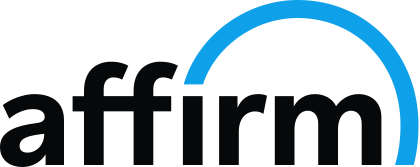
Google Your Name
This is the obvious starting point, as this is exactly what a hiring manager will do when starting their research on you. The idea here is to see what comes up on the first two or three pages that recruiters and hiring managers can end up clicking through to see who they are dealing with. Now, I am using the term “Googling” here as a catch-all. When examining your online footprint, don’t just use the Google search engine, look yourself up on all the major search engines (Bing, Yahoo! Search, Ask.com, AOL.com). Don’t forget to use different variations of your name. You may even want to add your location to the search parameters. Remember that search engines use what is called Boolean logic, meaning words such as “not”, “and” and “or” can be combined with other characters such as minus signs and quotation marks to make your search more specific and targeted.
Find The Imposters!
If you have a highly unique name, then you don’t necessarily have to worry about your name bringing up the results of others in a Google search. But most of us have someone out there with a name similar to ours that can potentially cause us trouble. A recruiter or hiring authority that receives your resume and decides to perform a search for you may end up finding negative entries that are not truly about you. But of course, that recruiter or hiring manager does not know that, do they? Perhaps a recruiter looks up your name and ends up finding a convicted felon. Or perhaps someone with your name is embroiled in a particularly nasty sexual harassment lawsuit. Either way, you will want to know going into your job search whether this situation is out there.
How Are We Presenting On Social Media?
Properly branded social media is an underutilized tool in most people’s job search. I am not necessarily talking about how people use it to search for employment. I am talking about properly using it to establish your brand. Does your LinkedIn page come up on the first page? (If not, you should be working on that) What about your Facebook and Twitter pages? Of course, what is more important than their placement within search engines is what they will find when they click through. I know, most of you think “privacy settings” keep you buffered from outsiders, but this isn’t necessarily the case. A recent JobVite survey revealed that 73% of recruiters plan to ramp up their investment in social media recruiting. So you have to know that with their incomes on the line, recruiters likely have a way to find the “real you” if they want to. The same goes for your blog posts. If you love creating mayhem under articles covering controversial topics, just remember that most of them are searchable. If you haven’t already, review those accounts, posts and photos to ensure that they are something you would want a potential employer to see. Because whether you want to believe it or not, they will.
How Do I Fix This?
The social media accounts fix is easy. Delete the damning material. But what about the other items? Well, sorry to say there is no fast way to handle this on the search side. However, you can begin to take back control of your online identity slowly but surely. The key is to begin creating online content that begins to push the other information down in the search rankings:
- First, decide how you want your name to live online and stick to that. For example, if your name is John Public and there is another John Public out there giving you a bad name, you may want to begin branding yourself with the middle initial (John D. Public), or perhaps go by the first initial and middle name (J. David Public).
- Build a well optimized LinkedIn Profile if you do not already have one. A good LinkedIn profile is a necessary tool for an effective job search anyway, since 80% of available jobs appear on the platform.
- Purchase a personalized URL and launch a website.
- Start your own properly properly optimized blog where you can begin establishing yourself as an industry expert.
- Write guest blogs or articles for other websites, ensuring they use a bio that you develop with your online name and qualifications.













